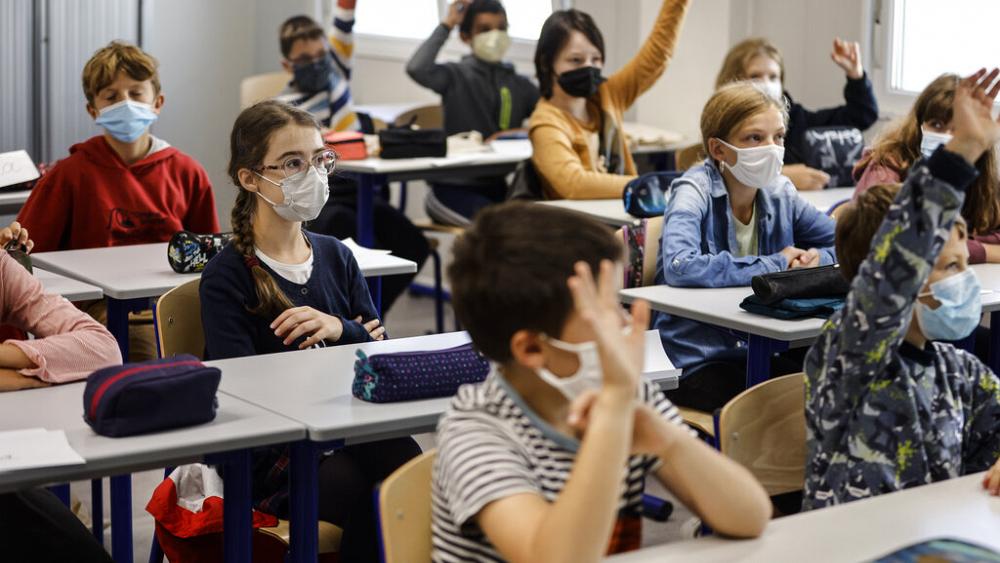Excitement meets worry as European kids head back to school

English educator Richard Sheriff watched this week as a group of energetic 11-year-olds entered their new secondary school for the first time - finding their classrooms, eating in the cafeteria, racing around the halls.The familiar rituals of a school sparking back to life were especially poignant after a year and a half of disruption driven by the corona virus pandemic, said Sheriff, head of the Red Kite Learning Trust, a group of primary and secondary schools in the Yorkshire region. But in addition to the usual excitement, he had a new feeling this year: "Trepidation."
The start of a new school year in many northern hemisphere nations comes as the highly infectious delta variant continues to drive a surge in corona virus cases - especially among children, many of whom are not yet eligible for vaccination.
Still, many governments including Britain's are determined to get children back into classrooms after 18 stop-start months of lockdowns, remote learning and abandoned exams. U.K. schools, have closed for three-month stretches twice since early 2020, and major year-end exams have been canceled two years running, throwing university admissions into chaos.
While most European countries are retaining some restrictions for schools, British Prime Minister Boris Johnson's Conservative government is pushing this year for something approximating pre-pandemic normality. It has removed social distancing and mask-wearing orders and no longer requires pupils to be grouped into "bubbles" to limit the spread of the virus.
Instead, the government says students should be tested regularly, and schools will be given guidance on improving ventilation. Politicians and the group of scientists that advises the government have acknowledged it's a gamble. The Scientific Advi-sory Group for Emerg-encies said in August that "it is highly likely that exponential increases will be seen in school-attending age groups after schools open."
